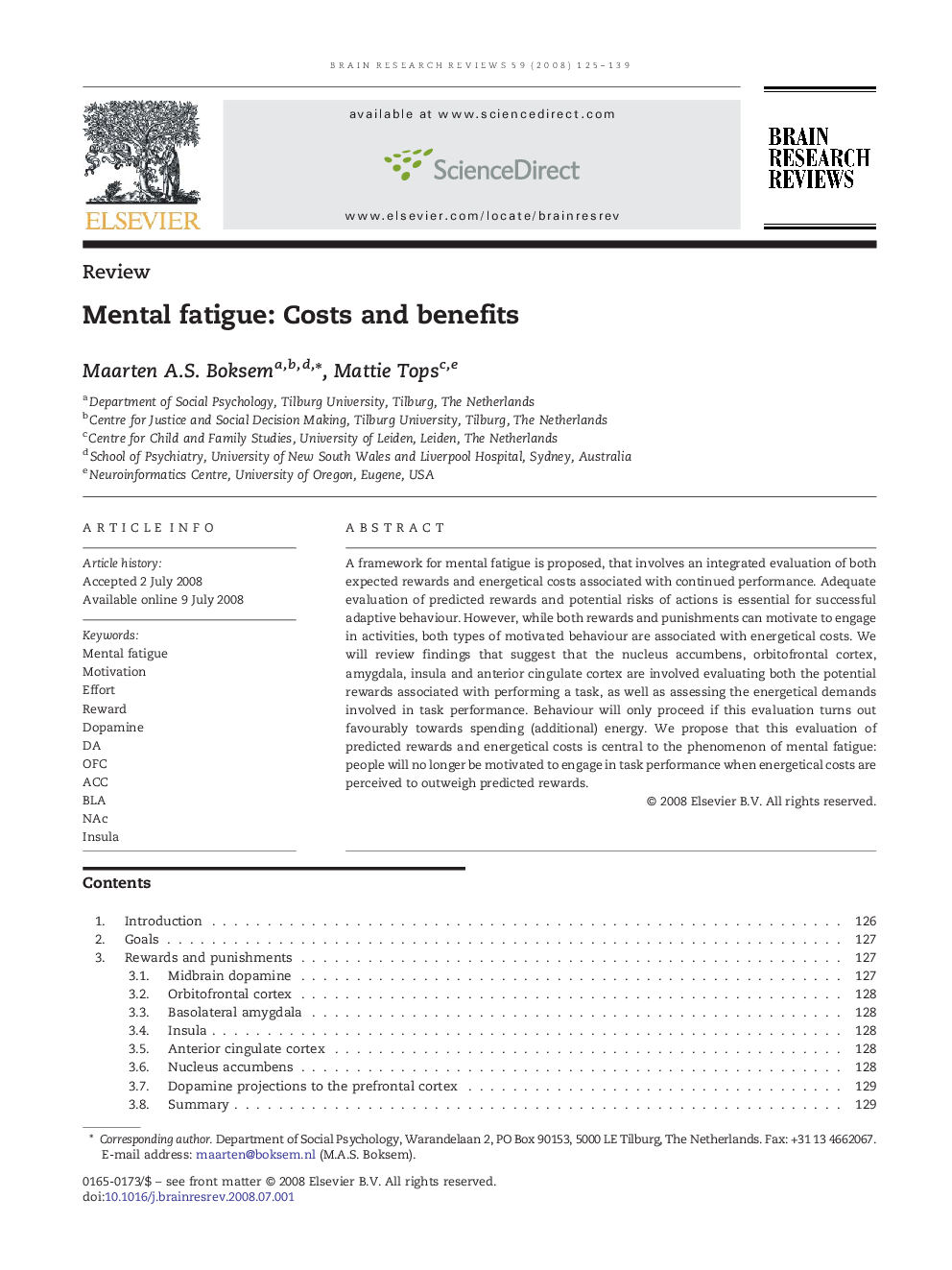| Article ID | Journal | Published Year | Pages | File Type |
|---|---|---|---|---|
| 4333791 | Brain Research Reviews | 2008 | 15 Pages |
A framework for mental fatigue is proposed, that involves an integrated evaluation of both expected rewards and energetical costs associated with continued performance. Adequate evaluation of predicted rewards and potential risks of actions is essential for successful adaptive behaviour. However, while both rewards and punishments can motivate to engage in activities, both types of motivated behaviour are associated with energetical costs. We will review findings that suggest that the nucleus accumbens, orbitofrontal cortex, amygdala, insula and anterior cingulate cortex are involved evaluating both the potential rewards associated with performing a task, as well as assessing the energetical demands involved in task performance. Behaviour will only proceed if this evaluation turns out favourably towards spending (additional) energy. We propose that this evaluation of predicted rewards and energetical costs is central to the phenomenon of mental fatigue: people will no longer be motivated to engage in task performance when energetical costs are perceived to outweigh predicted rewards.
